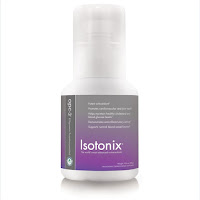'Breakthrough' study supports Pycnogenol's vascular benefits
By Stephen DANIELLS, Nut 07-Jun-2012
Daily supplements of an extract from French Maritime Pine bark may boost vascular health in people with stable coronary artery disease, according to data from a gold standard randomized, double-blind, placebo-controlled, crossover study from Switzerland.
Eight weeks of supplementation with Pycnogenol were associated with significant improvements in the function of the cells lining blood vessels (endothelial cells), report researchers from the University Hospital Zurich and the University of Zurich.
Writing in the European Heart Journal, the Switzerland-based scientists report that 200 milligrams per day of the pine bark extract resulted in an increase in flow mediated dilation (FMD) from 5.3 to 7.0, while no such improvements were observed for placebo. FMD is a measure of a blood vessel's healthy ability to relax.
Dr Frank Enseleit, the lead researcher of the study, said: “The results of this study show for the first time that Pycnogenol significantly improves endothelial function and blood flow in patients with coronary heart disease.
“The contribution of Pycnogenol for vascular health can be clearly identified in spite of patients’ complex medication regimen of blood thinners, statins and blood pressure medications.”
Pycnogenol has been the subject of scores of clinical studies suggesting benefits covering everything from cardiovascular, joint, cognitive and eye health to the relief of hay fever, PMS, tinnitus, hemorrhoidal pain and menopause symptoms.
Commenting on the new study, Victor Ferrari, CEO of Horphag, told NutraIngredients-USA that numerous Pycnogenol-containing products targeting circulatory health and heart health are already available in almost all the company’s markets world-wide.
“Early research on Pycnogenol has been performed in the field of venous insufficiency and circulatory support. We are therefore extremely pleased to see these wonderful results in such a high end clinical trial,” he said.
The participants also received statins, anti-hypertensives and blood thinners throughout the study.
By Stephen DANIELLS, Nut 07-Jun-2012
Daily supplements of an extract from French Maritime Pine bark may boost vascular health in people with stable coronary artery disease, according to data from a gold standard randomized, double-blind, placebo-controlled, crossover study from Switzerland.
Eight weeks of supplementation with Pycnogenol were associated with significant improvements in the function of the cells lining blood vessels (endothelial cells), report researchers from the University Hospital Zurich and the University of Zurich.
Writing in the European Heart Journal, the Switzerland-based scientists report that 200 milligrams per day of the pine bark extract resulted in an increase in flow mediated dilation (FMD) from 5.3 to 7.0, while no such improvements were observed for placebo. FMD is a measure of a blood vessel's healthy ability to relax.
Dr Frank Enseleit, the lead researcher of the study, said: “The results of this study show for the first time that Pycnogenol significantly improves endothelial function and blood flow in patients with coronary heart disease.
“The contribution of Pycnogenol for vascular health can be clearly identified in spite of patients’ complex medication regimen of blood thinners, statins and blood pressure medications.”
Pycnogenol has been the subject of scores of clinical studies suggesting benefits covering everything from cardiovascular, joint, cognitive and eye health to the relief of hay fever, PMS, tinnitus, hemorrhoidal pain and menopause symptoms.
Commenting on the new study, Victor Ferrari, CEO of Horphag, told NutraIngredients-USA that numerous Pycnogenol-containing products targeting circulatory health and heart health are already available in almost all the company’s markets world-wide.
“Early research on Pycnogenol has been performed in the field of venous insufficiency and circulatory support. We are therefore extremely pleased to see these wonderful results in such a high end clinical trial,” he said.
The participants also received statins, anti-hypertensives and blood thinners throughout the study.
“After Pycnogenol usage, we were able to identify a significant improvement of endothelial function in individuals who depend on medications as a result of their heart disease,” said Dr Enseleit.
“Pycnogenol appears to help restore the body’s own functions in flow-mediated arterial dilatation.”
To read more about this article and the full study click here
Isotonix OPC-3 contains the only isotonic form of Pycnogenol® in the world. Click here to Learn more about OPC-3“Pycnogenol appears to help restore the body’s own functions in flow-mediated arterial dilatation.”
To read more about this article and the full study click here


